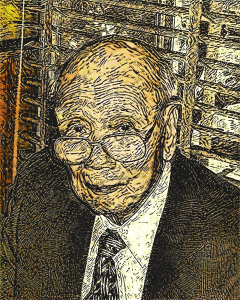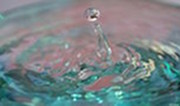
Ng Tin Sheung (1913-2012)
On this Father’s Day, 2023, I’d like to share two excerpts from my forthcoming novel about the Chinese immigration experience through Angel Island in the early 1900’s (Bridge Across The Sky, Atheneum Books for Young Readers, Fall 2024) that were inspired by memories of my father.
The opening stanza of the novel is based on the only story I ever heard my father tell about his younger days. He wasn’t in the habit of talking about his past, at least to his children, but one day, I overheard him telling a visitor about how he used to swim in a river rapid as a young man. He told the story with relish, seeming to plunge once more into the blinding whitewater as he told it.
I was amazed. It was not a side of him that I’d ever seen or suspected. He was in his 40’s by the time I was born; I’d known him only as a hardworking, cautious man of simple domestic pleasures.
When I sat down to write this novel set in 1924, my most vivid impression of life in China during those days was my father’s story about swimming that river. So I began the narrative with my teenage protagonist thinking back to his own attempts to brave chaotic waters:
I picture yesterday’s river,
outside the village that was once
my home, beyond the grove
of dove trees with their long blossoms
hanging like wrinkled paper bats,
the river our parents
forbade us to swim, where we’d plunge
into the churn, blinded by cold
and the bright froth, propelling ourselves,
crossways to the current,
to rise, arms lifted, shivering,
on the rocks of the far side.
My father was an herbalist. My strongest childhood memories involve the smell of the herbs he stocked and the teas he brewed with them, the clanking of the bottles my mother washed, filled with the teas, and then packed into paper bags for his patients, and his heavy footsteps as he walked back and forth between the kitchen and the front part of the house that he used as an office.
And the touch of his fingers on my wrist taking my pulses, his method of diagnosing a person’s health.
Early in the novel, the Chinese detainees are put through medical exams that are traumatizing to them because of how unused they are to western medical practices. In this poem, I contrast that experience with my protagonist’s memories of the doctor who served his village:
my heart
The house
of our village doctor was filled
with the dried-out smell
of root and leaf and twig,
or sometimes with steam
from the teas he brewed, bitter
with potency.
He diagnosed our illnesses
through nothing more
than his touch on our wrists
as we sat across a narrow table made
of a hard, lustrous wood carved
with designs of flowers
and dragons, fancier
than anything else
in the village, but whose fourth leg
was a plain wooden stump.
Sow Fong tells me
the exams we underwent,
the needles
and the nakedness, are just
how medicine is practiced here
and not some special torment
the pale powers reserve
for those they see
as livestock.
Not, he adds,
that they don’t
see us as livestock.
I’m lying
on my upper bunk. We’ve been
to breakfast, but I came right back
and have no wish (for now
at least, I tell
Sow Fong) to be shown
any more
of the barracks or to go
outside.
Sow Fong stands
at the very end
of the bunk. His shifting feet
come close to tripping
over mine, as he tests
how far along
the upward sloping ceiling
he can touch.
Maybe it’s for
the best, he says. It’s
probably better,
right? I’m sure
we’ll get used to it
soon enough.
I think of the man
that everyone
in the village, elder
to child, calls “Doc,”
my wrist on the worn
cloth pad he sets
on the wooden table
between us (the pad
that smells—I smelled
it once, when he
was out of the room, holding
its softness up
to my face—like
the skin and sweat
of everyone else
in my village),
and he’s asking me
how I’ve been eating,
sleeping, with utmost tact
how I’ve been shitting.
I tell him all, feeling
his fingers, soft
as a warm breeze, precise
along my veins, learning
all he needs to know
from the beating
of my heart.
